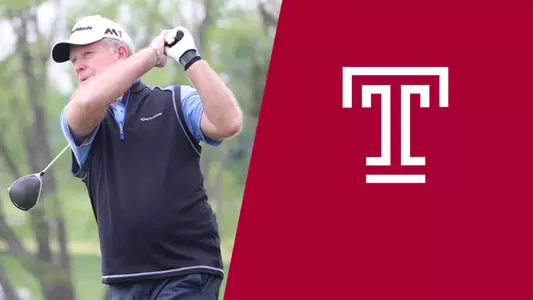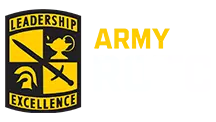Temple University Athletics

Hall of Fame Spotlight: Gary Hardin
4.10.24 | General, Men's Golf
Hall of Fame Spotlight: Gary Hardin
A four-year member of the Temple golf team, Gary Hardin served as the team captain for his final three seasons (1972-74).
Hardin won the Middle Atlantic Conference individual championship as a sophomore in 1972 to qualify as an individual for the NCAA Championships. He later helped the Owls qualify as a team to the NCAAs for the first time as a senior in 1974. That year, he also earned honorable mention All-American honors.
He also helped Temple to consecutive undefeated seasons in dual competition in 1973 and 1974. He later earned his PGA Tour card and retired in 2017 after 30-plus years as a club professional.
As a member of the Philadelphia section of the PGA America, Hardin has won over 30 tournaments, including the Section Championship, and has been Player of the Year and Teacher of the Year.
Your legendary father, Wayne, coached the football team as you were about to attend college. Did that end up being the deciding factor on your choice on what school you were going to?
"The reason I chose Temple was my father, but also, they recruited me to play golf. And to show how wise they were they let my dad coach football (laughing). Seriously, the timing was perfect as we went to Temple at the same time.
Temple has been great to me. I met my wife, Barbara, there and it was a tremendous opportunity for an education."
What was it like playing under another legend, Temple golf coach John MacDonald?
"John MacDonald came on as the coach my sophomore year and the program accelerated tremendously. I was elected the captain of John's first team and stayed captain for three years. Being elected captain was a tremendous honor. Coach MacDonald set a competitive tone for an Owls team that had a bunch of competitive players.
Three of four guys had served in the military and were in their late 20s. Despite the many differences we were a tight bunch who took our commitment to the golf team and the university seriously. Coach was the right man to lead us at that time. John's dedication to the advancement of the golf program at Temple cannot be overstated. I have always believed were it not for John MacDonald's leadership and commitment the golf program at Temple University would have perished long ago."
You were part of Temple's first NCAA Tournament team in 1974 as well as qualifying as an individual as a sophomore. Talk about how special that was?
"We had a few players like me go to the NCAAs as individuals prior to 1974. My sophomore year I went to the NCAAs as did Walter Brown and Joe Drygas. In my senior year, our team represented Temple at the NCAA Championships for the first time in school history. That was quite an honor for all of us.
We had a guy on our team named Mark Carrigan from New Jersey who won the NCAA long drive contest at the tournament. Mark was a big hooker of the golf ball and he tried to hit it straight to impress everyone. I said, 'Mark, what are you doing? Get that swinging hook out there. It is into the wind, and it will roll a mile.'
So, he hit a giant hook. The NCAA had two carts where the officials were measuring the driving distance. They were 20 yards past where anybody else had driven their ball and he rolled his drive right underneath their carts. So, it was pretty cool having an Owl win a national award.
As an individual I won the Middle Atlantic Conference championship to qualify for the NCAAs in 1972. It was a great experience. I did not know what to expect because my freshman year we asked our coach, 'how do we get to the NCAA Championship?' We were so naïve that we did not know the NCAA even had a tournament. Our coach at the time told Joe Drygas and me not to worry about the NCAAs because we were not good enough to get there. That was the best motivation we ever received from that coach.
We had very little support until John (MacDonald) got there. We were not good enough players to fulfill his mission right away, but we won the ECAC Championship his first year and qualified for the regionals. That was held up at Bucknell and it was his first tournament win as a coach."
Upon graduation you played professionally on the PGA Tour. What was that experience like?
"When I was in school, I had no expectations of turning professional. One of my really good friends, Don DeAngelis' father was the head golf professional at Plymouth, which is now The 1912 Club. After I graduated Mr. Dixon, Fitz Eugene Dixon, was nice enough to sponsor me and give me a couple of years on the road to pursue a professional career and find out if I could play or not.
I was going to go to Law School when I graduated. I took the LSAT and was getting ready to go to Law School until this opportunity came along. One of my law professors asked me what I was going to do with myself when I was out of school. I replied that I was going to play golf. His response was 'what redeeming value can that provide society?' I said, 'probably none, but I love the game and the competition and since I have an opportunity to pursue a career in the game, I think I will take a few steps down that path.'
When I got started playing golf professionally, I got a little better each year. I toiled away at it, and it took me from January '75 until June of 1980 to earn a PGA Tour card. I played the mini tours for that length of time, and I had the opportunity to play in Europe for a couple of years all because of Mr. Dixon's support.
Those experiences and the competitive experience I gained enabled me to finally secure my PGA Tour card at Pinehurst in June 1980. Although my stay on Tour was all too brief it was not without its rewards. I learned a lot, met a lot of good people: people I still stay in touch with today."
Talk about your decision to move from the professional tour to becoming a club professional?
"Don DeAngelis' father, Pete, got me into the PGA program to become a club professional in 1977. I had no intention of becoming one at the time and did not know much about it as I wanted to play. There are golf professionals and professional golfers. At that point I was a professional golfer and trying to stay one but also not making enough money to support myself.
So, I was trying to make a decision on what I was going to do, and Pete says to me. 'You are a nice player but there are a million of them. Why don't you have a net to fall into and come to work for me and you can work with Donny and learn the business. If that suits you fine, if not then, then go back and play."
That started my career as a PGA of America Club Professional. I did become a PGA Tour member in 1980, but I was also working my way towards becoming a PGA of America member. Once I lost my PGA card in 1981 I ended up going to work for Donny at Plymouth (CC). I then went to Cornwells (CC) and worked there from 1982 through 1985. I was at Cedarbrook (CC) from '86 until '89 before starting at Northampton (CC) in 1990 where I stayed for 28 years until retiring in 2018.
I wanted to be a Professional Golfer and ended up being a Golf Professional."
You played in the Senior PGA Championship and U.S. Senior Open in 2005. How was that experience?
"It was my last time playing professionally at that level. The fog cleared a little bit and some of the amnesia went away, and I played ok in '05 (laughing).
I played in two Senior Majors, making the cut at the Senior US Open at NCR Country Club in Ohio."
What are you doing now in retirement?
"I retired at the end of 2017. I have had some major surgeries since then I have been working my back to being healthy, playing golf again and teaching."
A four-year member of the Temple golf team, Gary Hardin served as the team captain for his final three seasons (1972-74).
Hardin won the Middle Atlantic Conference individual championship as a sophomore in 1972 to qualify as an individual for the NCAA Championships. He later helped the Owls qualify as a team to the NCAAs for the first time as a senior in 1974. That year, he also earned honorable mention All-American honors.
He also helped Temple to consecutive undefeated seasons in dual competition in 1973 and 1974. He later earned his PGA Tour card and retired in 2017 after 30-plus years as a club professional.
As a member of the Philadelphia section of the PGA America, Hardin has won over 30 tournaments, including the Section Championship, and has been Player of the Year and Teacher of the Year.
Your legendary father, Wayne, coached the football team as you were about to attend college. Did that end up being the deciding factor on your choice on what school you were going to?
"The reason I chose Temple was my father, but also, they recruited me to play golf. And to show how wise they were they let my dad coach football (laughing). Seriously, the timing was perfect as we went to Temple at the same time.
Temple has been great to me. I met my wife, Barbara, there and it was a tremendous opportunity for an education."
What was it like playing under another legend, Temple golf coach John MacDonald?
"John MacDonald came on as the coach my sophomore year and the program accelerated tremendously. I was elected the captain of John's first team and stayed captain for three years. Being elected captain was a tremendous honor. Coach MacDonald set a competitive tone for an Owls team that had a bunch of competitive players.
Three of four guys had served in the military and were in their late 20s. Despite the many differences we were a tight bunch who took our commitment to the golf team and the university seriously. Coach was the right man to lead us at that time. John's dedication to the advancement of the golf program at Temple cannot be overstated. I have always believed were it not for John MacDonald's leadership and commitment the golf program at Temple University would have perished long ago."
You were part of Temple's first NCAA Tournament team in 1974 as well as qualifying as an individual as a sophomore. Talk about how special that was?
"We had a few players like me go to the NCAAs as individuals prior to 1974. My sophomore year I went to the NCAAs as did Walter Brown and Joe Drygas. In my senior year, our team represented Temple at the NCAA Championships for the first time in school history. That was quite an honor for all of us.
We had a guy on our team named Mark Carrigan from New Jersey who won the NCAA long drive contest at the tournament. Mark was a big hooker of the golf ball and he tried to hit it straight to impress everyone. I said, 'Mark, what are you doing? Get that swinging hook out there. It is into the wind, and it will roll a mile.'
So, he hit a giant hook. The NCAA had two carts where the officials were measuring the driving distance. They were 20 yards past where anybody else had driven their ball and he rolled his drive right underneath their carts. So, it was pretty cool having an Owl win a national award.
As an individual I won the Middle Atlantic Conference championship to qualify for the NCAAs in 1972. It was a great experience. I did not know what to expect because my freshman year we asked our coach, 'how do we get to the NCAA Championship?' We were so naïve that we did not know the NCAA even had a tournament. Our coach at the time told Joe Drygas and me not to worry about the NCAAs because we were not good enough to get there. That was the best motivation we ever received from that coach.
We had very little support until John (MacDonald) got there. We were not good enough players to fulfill his mission right away, but we won the ECAC Championship his first year and qualified for the regionals. That was held up at Bucknell and it was his first tournament win as a coach."
Upon graduation you played professionally on the PGA Tour. What was that experience like?
"When I was in school, I had no expectations of turning professional. One of my really good friends, Don DeAngelis' father was the head golf professional at Plymouth, which is now The 1912 Club. After I graduated Mr. Dixon, Fitz Eugene Dixon, was nice enough to sponsor me and give me a couple of years on the road to pursue a professional career and find out if I could play or not.
I was going to go to Law School when I graduated. I took the LSAT and was getting ready to go to Law School until this opportunity came along. One of my law professors asked me what I was going to do with myself when I was out of school. I replied that I was going to play golf. His response was 'what redeeming value can that provide society?' I said, 'probably none, but I love the game and the competition and since I have an opportunity to pursue a career in the game, I think I will take a few steps down that path.'
When I got started playing golf professionally, I got a little better each year. I toiled away at it, and it took me from January '75 until June of 1980 to earn a PGA Tour card. I played the mini tours for that length of time, and I had the opportunity to play in Europe for a couple of years all because of Mr. Dixon's support.
Those experiences and the competitive experience I gained enabled me to finally secure my PGA Tour card at Pinehurst in June 1980. Although my stay on Tour was all too brief it was not without its rewards. I learned a lot, met a lot of good people: people I still stay in touch with today."
Talk about your decision to move from the professional tour to becoming a club professional?
"Don DeAngelis' father, Pete, got me into the PGA program to become a club professional in 1977. I had no intention of becoming one at the time and did not know much about it as I wanted to play. There are golf professionals and professional golfers. At that point I was a professional golfer and trying to stay one but also not making enough money to support myself.
So, I was trying to make a decision on what I was going to do, and Pete says to me. 'You are a nice player but there are a million of them. Why don't you have a net to fall into and come to work for me and you can work with Donny and learn the business. If that suits you fine, if not then, then go back and play."
That started my career as a PGA of America Club Professional. I did become a PGA Tour member in 1980, but I was also working my way towards becoming a PGA of America member. Once I lost my PGA card in 1981 I ended up going to work for Donny at Plymouth (CC). I then went to Cornwells (CC) and worked there from 1982 through 1985. I was at Cedarbrook (CC) from '86 until '89 before starting at Northampton (CC) in 1990 where I stayed for 28 years until retiring in 2018.
I wanted to be a Professional Golfer and ended up being a Golf Professional."
You played in the Senior PGA Championship and U.S. Senior Open in 2005. How was that experience?
"It was my last time playing professionally at that level. The fog cleared a little bit and some of the amnesia went away, and I played ok in '05 (laughing).
I played in two Senior Majors, making the cut at the Senior US Open at NCR Country Club in Ohio."
What are you doing now in retirement?
"I retired at the end of 2017. I have had some major surgeries since then I have been working my back to being healthy, playing golf again and teaching."
Ep. 9: Head Women's Soccer Coach Chris Shaw
Friday, October 03
Ep. 8: Temple Athletics Weekly Recap; Women's Cross Country Runner Amelia Sabatino
Tuesday, September 30
Ep. 7: Temple Field Hockey Alumna Cherifa Howarth
Friday, September 26
Ep. 6: Temple Athletics Weekly Recap; Field Hockey's Peyton Rieger
Tuesday, September 23











